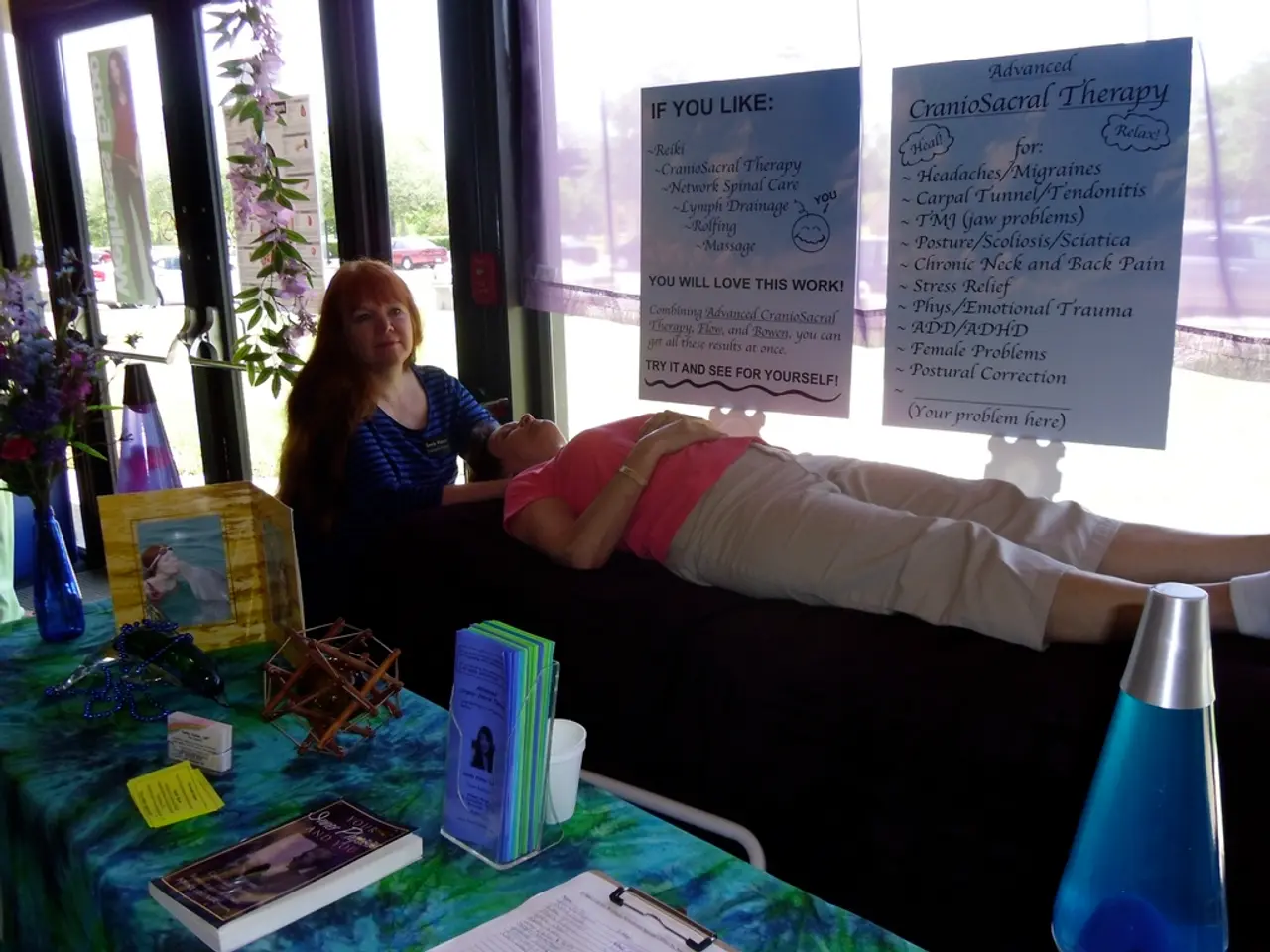Understanding Anxiety Tics: Know Your Options for Treatment
In the realm of physical manifestations of stress and anxiety, anxiety twitches – also known as anxiety tics – are a common occurrence. Unlike Tourette's syndrome, anxiety twitches are not caused by anxiety but are rather a response to heightened stress or anxiety. Tourette's syndrome, on the other hand, has genetic, chemical, and environmental roots.
Anxiety twitches are involuntary movements or muscle spasms that can be physically uncomfortable and inconvenient. They can manifest as jerking the head, rapid blinking, scrunched nose, tongue movements, grimacing, shoulder shrugging, and other physical movements. It's important to note that anxiety twitches are not a formal disorder with specific diagnostic criteria.
Managing anxiety twitches involves a combination of strategies that focus on reducing anxiety and its physical manifestations. Here are some effective treatment options:
1. **Behavioral Therapies** - **Comprehensive Behavioral Intervention for Tics (CBIT):** While primarily used for tic disorders like Tourette syndrome, CBIT can help manage tics by increasing awareness of the twitches and teaching competing responses to replace them. This method is systematic and tailored to the individual's needs. - **Relaxation Techniques:** Stress can exacerbate anxiety, and techniques like deep breathing, muscle relaxation, and meditation can help manage stress and reduce muscle spasms associated with anxiety.
2. **Medications** - **Anxiolytics:** These medications can rapidly alleviate symptoms of anxiety, which can contribute to muscle spasms or twitches. They should be used under the guidance of a healthcare provider. - **Muscle Relaxants:** Though not specifically for anxiety twitches, in some cases, muscle relaxants may be prescribed to alleviate muscle spasms but should be used with caution due to potential side effects.
3. **Lifestyle Changes** - **Hydration:** Drinking enough water is crucial as dehydration can worsen muscle spasms. - **Avoid Dehydrating Substances:** Limiting alcohol intake can help prevent dehydration-related muscle spasms. - **Stress Management:** Identifying and managing stress triggers can help reduce anxiety and its physical manifestations.
4. **Botulinum Toxin (Botox) Injections** - Though primarily used for conditions like hemifacial spasm, Botox injections can be effective for managing severe or persistent muscle spasms or twitches by relaxing the muscles. However, they require repeated injections and should be administered by a specialist.
These approaches can be used in combination based on the individual's specific needs and the severity of their symptoms. Consulting with a healthcare provider is essential to determine the most appropriate treatment plan.
In the case of Tourette's syndrome, a neurological disorder where tics, both motor and vocal, are triggered by a premonitory urge and last for at least a year, therapy techniques such as Cognitive Behavioral Therapy (CBT), Habit Reversal Therapy (HRT), Exposure and Response Prevention (ERP), and Comprehensive Behavioral Intervention for Tics (CBiT) can be beneficial. Medications like Selective Serotonin Reuptake Inhibitors (SSRIs) such as fluoxetine, escitalopram, and citalopram, Serotonin-Norepinephrine Reuptake Inhibitors (SNRIs) like venlafaxine and duloxetine, and Benzodiazepines like clonazepam and lorazepam may also be prescribed.
In conclusion, managing anxiety twitches or tics requires a holistic approach that addresses both the psychological and physical aspects of the condition. It's essential to consult with a healthcare provider to determine the most appropriate treatment plan.
- The practice of CBIT (Comprehensive Behavioral Intervention for Tics), often used for tic disorders like Tourette's syndrome, can aid in managing anxiety twitches, increasing awareness of twitches and teaching competing responses to replace them.
- In the realm of mental-health, implementing stress management techniques like CBT (Cognitive Behavioral Therapy) can be beneficial for individuals with Tourette's syndrome, helping them identify and manage stress triggers to reduce anxiety and its physical manifestations.




